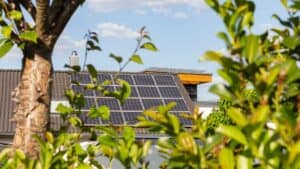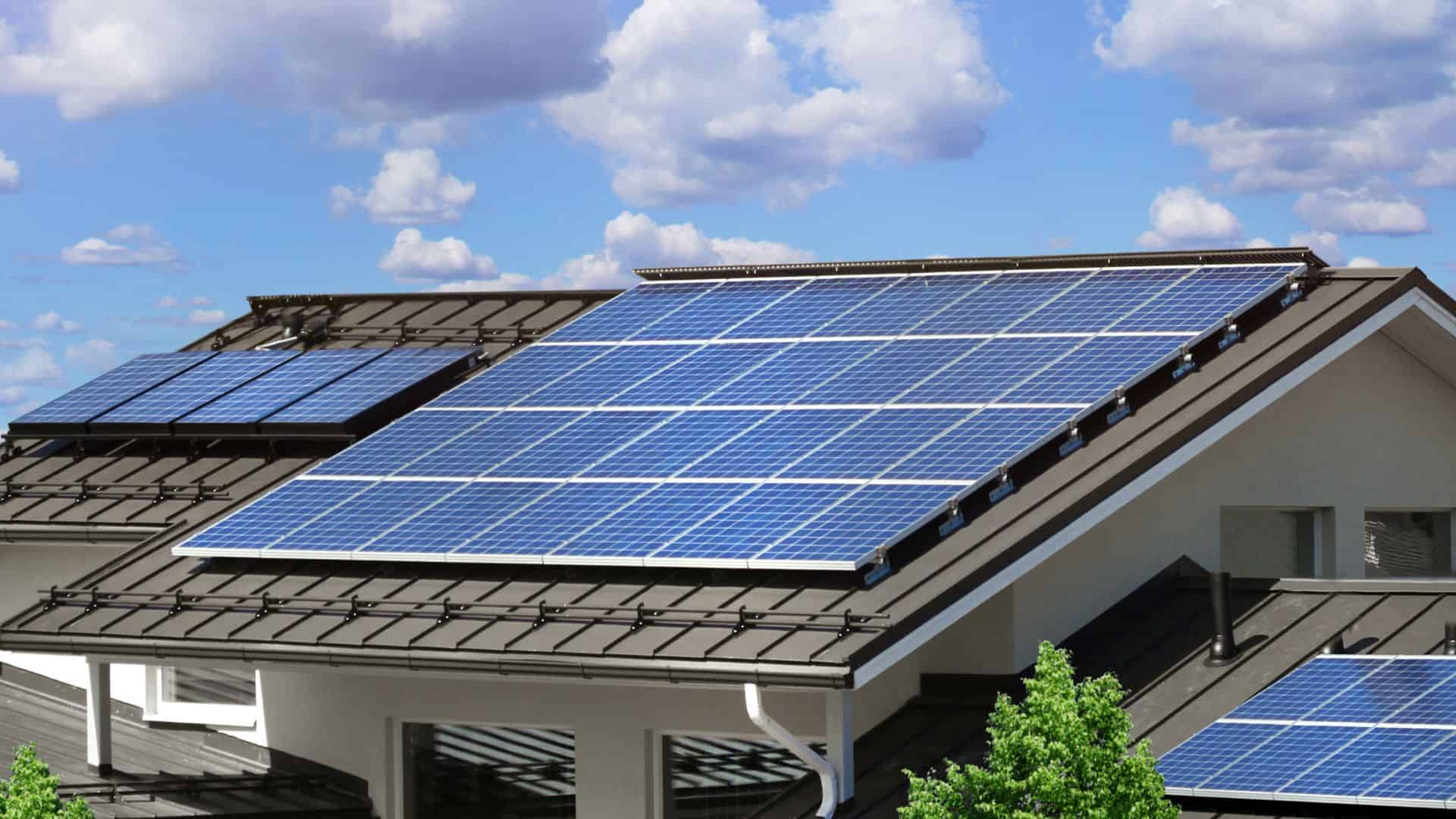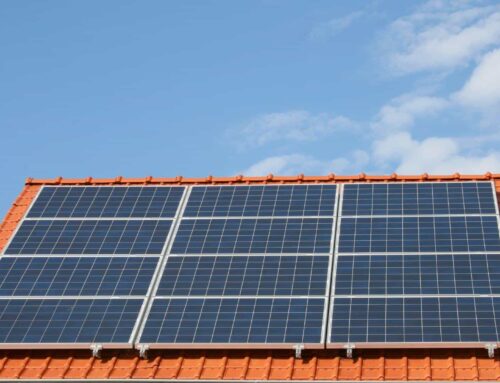Are rising electricity costs making it difficult for Rhode Island homeowners to manage their energy bills? Understanding the benefits of solar power panels can provide a viable solution. This article will cover the financial advantages of solar energy, its positive environmental impacts, and local success stories that highlight the effectiveness of solar technology. Readers will gain insights into how solar power can reduce their energy expenses and contribute to a cleaner environment, addressing common concerns and helping them make informed decisions. Engaging with this content will empower homeowners to explore solar options that meet their needs with confidence, including real-world testimonials and opportunities for solar plus solutions.
Key Takeaways
- Solar panels can significantly reduce energy costs and carbon footprints for Rhode Island homeowners
- Rhode Island offers incentives like tax credits to encourage solar energy investments
- Adopting solar power enhances property value and appeals to environmentally conscious buyers
- Community solar projects provide accessible renewable energy options for those unable to install on-site
- Regular maintenance ensures solar systems perform efficiently and last longer for homeowners
Understanding the Benefits of Solar Power Panels for Homes in Rhode Island
Solar power panels offer homeowners in Rhode Island a pathway to enhance energy independence and contribute to a sustainable future. By harnessing renewable energy from the sun, these systems can significantly reduce reliance on conventional electric generators. This section will delve into how solar plus power can generate heat and produce alternating current for residential use, illustrating the practical benefits of adopting this clean energy source. Additionally, testimonials from satisfied customers highlight the effectiveness of knowsolar solutions.
Enhancing Energy Independence
Solar power panels, particularly those utilizing photovoltaics, play a significant role in enhancing energy independence for Rhode Island homeowners. By generating electricity directly from sunlight, these systems decrease reliance on traditional utility sources. A well-installed solar panel system can lead to substantial savings on energy costs over time, making it an attractive investment for many residents.
Moreover, many solar panel options come with warranties that provide long-term protection for homeowners. This assurance allows users to enjoy the benefits of renewable energy without the worry of unexpected expenses. According to EnergySage, these warranties often cover both the equipment and installation, ensuring that homeowners can maintain their energy independence securely and effectively.
Contributing to a Sustainable Future
Solar power panels not only provide financial benefits but also contribute to environmental sustainability in Rhode Island. By installing a solar system, homeowners can reduce their carbon footprint, resulting in cleaner air and a healthier ecosystem. This shift supports the local electrical grid by decreasing overall energy demand during peak times, thus enhancing grid reliability and stability.
Moreover, Rhode Island offers a robust tax credit for solar energy systems, which encourages more residents to invest in this renewable resource. This financial incentive complements the long-term gains from reduced electricity costs, creating a win-win situation for homeowners and the environment alike. Engaging in solar power aligns with the state’s commitment to sustainability, making it a viable solution for those looking to make a positive impact:
| Benefit | Description |
|---|---|
| Environmental Impact | Reduces carbon emissions and enhances air quality. |
| Energy Independence | Decreases reliance on traditional electricity sources. |
| Tax Incentives | State tax credits improve the financial viability of solar investments. |
| Support for Electrical Grid | Helps stabilize the grid during high-demand periods. |
Financial Advantages of Solar Power Panels

Solar power panels provide significant financial advantages for homeowners in Rhode Island. These systems can reduce monthly electricity bills, making energy costs more manageable within a family budget. Investing in solar also increases property value, benefiting homeowners in the long run. Furthermore, taking advantage of available federal and state credits can ease the initial financial burden, making solar more accessible than ever.
Reducing Monthly Electricity Bills
Implementing solar power panels in Rhode Island can lead to significant reductions in monthly electricity bills. Homeowners who invest in solar energy typically experience a decrease in utility costs, as the energy generated from solar cells can offset a substantial portion of their energy consumption. This shift offers a straightforward solution for those seeking to manage their expenses more effectively while enjoying potential savings that can contribute to mortgage payments or other household costs.
Furthermore, as traditional energy prices continue to rise, solar power becomes an increasingly attractive option for financial stability. Homeowners benefit from fixed energy costs associated with solar energy systems, insulating them from fluctuating utility prices. This predictability not only aids in budget planning but also increases long-term savings, making the initial investment in solar panels a wise choice for homeowners looking to enhance their financial resilience.
Increasing Property Value Through Solar Investment
Installing solar power panels can significantly boost property value for homeowners in Rhode Island. This investment not only showcases a commitment to sustainability but also appeals to prospective buyers who are increasingly interested in energy-efficient homes. Additionally, state tax exemptions and incentives make solar installations even more attractive, as they can lead to substantial savings in overall costs.
Moreover, homes equipped with solar panels often experience higher market values due to the long-term savings associated with reduced energy bills. Each watt of solar energy harnessed contributes to lower monthly expenses, which can be a compelling selling point. As the demand for energy-efficient homes rises, homeowners can expect that their investment in solar technology will yield financial benefits when it comes time to sell their property.
Utilizing Federal and State Incentives
Homeowners in Rhode Island can significantly reduce their solar investment through available federal and state incentives. The federal investment tax credit offers a substantial rebate, allowing homeowners to deduct a percentage of the solar system cost from their federal taxes. Additionally, local programs often include low-interest loans and rebates that make accessing sustainable energy more financially feasible, encouraging residents to explore solar solutions.
Power purchase agreements (PPAs) present another option for those hesitant about upfront costs. Under a PPA, a third party owns the solar system and sells electricity back to the homeowner at a predetermined rate. This arrangement provides immediate savings on energy bills without the burdens associated with system ownership, making solar energy more accessible for those seeking reliable information on financing options.
| Incentive Type | Benefits |
|---|---|
| Federal Investment Tax Credit | Offers significant tax deductions on solar system costs. |
| State Rebates | Helps reduce the upfront cost of solar investment. |
| Low-Interest Loans | Makes financing solar panels more manageable for homeowners. |
| Power Purchase Agreements | Allows homeowners to benefit from solar energy without owning the system. |
Environmental Impacts of Solar Energy

Solar power panels play a vital role in decreasing carbon footprints by providing clean energy alternatives, particularly in Rhode Island. By reducing reliance on fossil fuels, these systems help preserve natural resources and protect the earth. The upcoming sections will explore how net metering enhances financial benefits and the importance of working with a licensed electrician to ensure optimal solar panel performance, leading to cash savings for homeowners.
Decreasing Carbon Footprint With Solar Panels
Using solar panels helps homeowners in Rhode Island significantly lower their carbon footprint. By converting sunlight into useful energy, these systems reduce the need for fossil fuels, which are major contributors to greenhouse gas emissions. A well-functioning solar inverter ensures that the energy generated is efficiently converted, allowing customers to power their properties with clean energy. This transition not only supports state policies aimed at promoting renewable energy but also enhances the overall quality of the environment.
Incorporating solar power into residential energy sources provides valuable data on energy consumption and savings. Homeowners can track their usage, leading to informed decisions about energy efficiency in their properties. As the number of solar installations increases, the collective impact on the environment becomes clear, providing a sustainable solution to energy needs while supporting the fight against climate change:
| Environmental Impact | Description |
|---|---|
| Reduced Carbon Emissions | Minimizes reliance on fossil fuels, lowering greenhouse gas output. |
| Cleaner Air | Decreases pollutants, contributing to improved air quality. |
| Energy Data Insights | Helps homeowners understand energy use and savings patterns. |
| Support for Renewable Policies | Aligns with local regulations encouraging sustainable energy solutions. |
Preserving Natural Resources in Rhode Island
Installing solar power panels in Rhode Island not only contributes to conserving energy but also aids in preserving valuable natural resources. Solar cells, primarily made from silicon, are a sustainable alternative to fossil fuels that deplete non-renewable resources. By harnessing sunlight, homeowners reduce their reliance on traditional energy sources, which helps protect the environment and supports a balanced ecosystem.
Furthermore, homeowners in Rhode Island can benefit from lease options for solar panel systems, making it easier to adopt renewable energy without significant upfront costs. This financial flexibility, combined with reduced sales tax on solar installations, encourages more residents to transition from conventional energy to cleaner alternatives like wind power and solar. The cumulative impact of these choices fosters a more sustainable future, ensuring that natural resources are preserved for generations to come.
Reliability and Resilience of Solar Energy Systems

Solar energy systems offer reliability and resilience for Rhode Island homeowners, particularly during outages. These panels can provide power even when traditional sources fail, enhancing energy independence. Maintenance and longevity contribute to their efficiency, ensuring long-lasting performance. By integrating energy storage solutions, homeowners can minimize reliance on fossil fuels while supporting net zero emissions and conserving water resources.
Providing Power During Outages
During power outages, solar energy systems can provide essential light and electricity by harnessing direct current generated from sunlight. Homeowners in Rhode Island can benefit significantly from having a solar power setup that includes battery storage options. This allows them to store excess energy produced during sunny days, providing a reliable source of power even when the grid fails.
The International Energy Agency highlights the growing importance of renewable energy solutions, especially in regions like Rhode Island and Connecticut. By investing in locally manufactured solar systems, homeowners can not only maintain power during outages but also contribute to a more resilient energy infrastructure. This adaptability is crucial for those seeking dependable energy sources amidst the increasing frequency of weather-related disruptions:
- Solar systems can generate light independent of the grid.
- Direct current enhances efficiency when paired with battery storage.
- Local manufacturing supports economic growth and resilience.
- Outage preparedness becomes a practical advantage for homeowners.
- Aligns with global renewable energy trends endorsed by the International Energy Agency.
Maintenance and Longevity of Solar Power Panels
Maintaining solar power panels is essential for ensuring their longevity and maximizing efficiency, especially for homeowners in Rhode Island. Regular inspections and cleaning can prevent performance declines that could extend the payback period on the initial investment. Research shows that well-maintained systems tend to last longer, providing reliable energy that reduces fuel costs over time while benefiting from available tax incentives.
Understanding the construction of solar energy systems helps homeowners appreciate their durability. Most solar panels are designed to withstand various weather conditions, requiring minimal maintenance beyond routine checks. By following manufacturer guidelines and utilizing professional services when needed, residents can secure a sustainable energy source that offers long-term benefits. Practical steps for effective maintenance include:
- Conducting annual inspections to identify potential issues.
- Cleaning panels regularly to remove dirt and debris.
- Monitoring energy output to ensure optimal performance.
Local Success Stories: Solar Power in Rhode Island Homes

Numerous case studies illustrate homeowners in Rhode Island who have chosen to implement home solar systems, showcasing the tangible benefits of solar installations. These success stories highlight how local communities thrive through increased energy independence and reduced costs. Moreover, collaboration with skilled solar contractors promotes responsible planning and execution of projects, linking residents to sustainable energy solutions that bolster community resilience.
Case Studies of Homeowners Who Went Solar
One notable case study involves a family from Providence that decided to install solar panels after receiving multiple solar quotes from different solar companies. After careful comparison, they chose an affordable solar option that not only met their budget but also significantly decreased their monthly energy expenses. This family now enjoys long-term savings and a reduced carbon footprint, showcasing how a smart investment can lead to sustainable living.
Another success story is a commercial property owner in Warwick who leveraged their roof space by installing solar panels with the help of a local solar company. By transitioning to commercial solar, this business managed to enhance its energy reliability while benefiting from tax incentives and lower overhead costs. Their experience highlights the financial advantages and environmental impact of choosing solar energy solutions, demonstrating the potential for local businesses to thrive through renewable energy initiatives:
- A family from Providence installed solar panels after comparing multiple solar quotes.
- Choose an affordable solar option to reduce monthly energy costs.
- Commercial property owners in Warwick enhanced energy reliability by going solar.
- Financial benefits included tax incentives and lower overhead.
Community Benefits of Widespread Solar Adoption
Widespread adoption of residential solar systems fosters community resilience by generating local energy and increasing energy independence. When homeowners collaborate with reputable solar installation companies, they can effectively invest in solar panel installation that strengthens the local economy. This investment not only enhances property values but also creates job opportunities, as more skilled workers are needed to meet the rising demand for solar solutions.
Additionally, the collective benefits of solar energy can lead to reduced strain on the electrical grid, especially during peak demand periods. As more residents opt for solar installation, the reliance on traditional energy sources diminishes, resulting in cleaner air and improved public health. Solar companies often provide educational resources, engaging communities in sustainable practices and ensuring that residents understand the advantages of clean energy investments.
Choosing the Right Solar Power Panels for Your Home

When homeowners consider solar power for their residences, evaluating solar panel efficiency and types is essential. Different options are available, including varieties manufactured in China and the United Kingdom. Partnering with reputable installers in Rhode Island also plays a crucial role in ensuring the successful installation of roofing systems. This section will provide practical insights into selecting the right solar panels to maximize benefits for homes in the state.
Evaluating Solar Panel Efficiency and Types
When evaluating solar panel efficiency and types, homeowners in Rhode Island should consider several factors that impact energy production and cost-effectiveness. Noting the diverse climate in New England, selecting panels that perform well under varying conditions is essential. Brands that offer high-efficiency ratings, such as Tier 1 manufacturers, are typically more reliable, enabling users to maximize energy generation and minimize fees associated with energy bills.
Additionally, different types of solar panels, including monocrystalline and polycrystalline options, have distinct advantages based on specific household needs. Homeowners may find that monocrystalline panels, while initially more expensive, often yield higher energy output and take up less space, making them a worthwhile investment for those looking to optimize their solar plant. Understanding these distinctions can guide individuals toward making informed decisions that align with their energy goals:
- Consider climate impacts on solar panel performance
- Research reliable brands are known for high efficiency
- Evaluate different types of solar panels available
- Assess initial costs versus long-term savings
Partnering With Reputable Installers in Rhode Island
Partnering with reputable installers in Rhode Island ensures that homeowners receive high-quality solar panel systems suited for distributed generation. These professionals understand local regulations and best practices, allowing for installations that effectively harness solar energy while contributing to the energy transition. Additionally, reliable installers are often familiar with potential interest rate incentives and financing options, making solar solutions more accessible to families.
Selecting experienced contractors also aligns with the standards set by the European Union for renewable energy initiatives. Understanding the importance of efficient installation can greatly affect the performance of solar systems. Homeowners can feel confident, knowing that expert installers will optimize energy generation, ensuring that they benefit fully from their investment in solar power panels.
Understanding Solar Energy Production in Different Seasons
Understanding solar energy production throughout the year is vital for homeowners in Rhode Island. This section will cover the performance of solar panels during winter months, highlighting their ability to function effectively even in colder temperatures. Additionally, it will discuss maximizing energy generation year-round, providing practical insights from the National Renewable Energy Laboratory. Homeowners can benefit from these strategies, enhancing their energy reliability during power outages while addressing cost concerns related to the Inflation Reduction Act and local zip code factors.
Performance of Solar Panels During Winter Months
Solar panels, such as Sunrun solar panels, continue to generate electricity effectively during winter months in Rhode Island, despite reduced sunlight and colder temperatures. Homeowners may worry that lower temperatures negatively affect performance, but in reality, solar panels can operate more efficiently in cooler conditions. This benefit results in reduced reliance on conventional energy sources, contributing to a lower carbon footprint while promoting electrification during peak energy demands.
To optimize solar energy production in winter, homeowners can explore financing options like a solar loan, enabling them to invest in efficient systems that perform well year-round. By integrating innovative technology, such as advanced inverters, users can maximize their savings and energy independence, ensuring they benefit from electricity generation even when sunlight is limited. A solid reference to local incentives can also motivate residents to consider solar, as they can significantly ease initial costs while supporting a shift toward renewable energy solutions.
Maximizing Energy Generation Year-Round
Maximizing energy generation year-round requires strategic planning and innovative solutions for homeowners in Rhode Island. By utilizing advanced solar technology and energy storage systems, individuals can ensure continuous power supply, creating a reliable backup during peak demand or outages. This not only enhances independence but can also generate income through net metering contracts, where excess energy produced is sent back to the grid.
Additionally, maintaining clear communication with local installers about seasonal performance can help homeowners optimize their solar setup. Understanding how different atmospheric conditions impact energy production allows for adjustments, ensuring that systems operate efficiently regardless of the time of year. Implementing these strategies positions homeowners to fully leverage their solar power investments while contributing to a sustainable energy future.
- Implement advanced solar technology for year-round efficiency.
- Utilize energy storage systems for reliable backup power.
- Engage in net metering contracts to monetize excess energy.
- Communicate with installers about seasonal adaptations.
- Optimize solar setups based on atmospheric conditions.
Addressing Common Concerns About Solar Power
Homeowners often have concerns about solar power panels, particularly regarding roof repairs and geographic suitability. Questions arise such as, “What happens if my roof needs repairs?” and “Are solar panels ideal for my home’s location?” Addressing these issues ensures homeowners make informed decisions about their energy investments, including the practicalities of using polycrystalline silicon panels, financing options, and how solar can integrate with electric vehicles to optimize electrical energy use.
What Happens if My Roof Needs Repairs?
If a homeowner in Rhode Island requires roof repairs, it is essential to address these issues before installing solar power panels. Taking care of roof-related problems upfront helps maintain the integrity of the installation and ensures that the solar investment provides a satisfactory return on investment. By addressing repairs in advance, homeowners can avoid potential complications, like the need to remove solar panels later, which could disrupt the supply chain and involve extra payment for reinstallation.
Are Solar Panels Right for My Home’s Location?
The suitability of solar panels for a specific home location in Rhode Island primarily depends on several factors, including roof orientation, shading from nearby structures or trees, and local sunlight exposure. Homes with south-facing roofs typically receive the most sunlight, making them ideal candidates for solar panel installations. Additionally, evaluating nearby community solar programs can provide alternatives for homeowners whose roofs may not be suitable for installing solar panels directly, allowing them to benefit from renewable energy without having it on their property.
Another important consideration is the integration of solar power with other energy solutions such as heat pumps for thermal energy efficiency. Homeowners should assess their energy needs and the potential for combining solar installation with other home improvement projects, as this combination can result in significant cost savings. By engaging with local experts in Rhode Island, homeowners can receive tailored advice, ensuring that their energy strategies align with their specific circumstances and contribute positively to their energy independence:
- Evaluate roof orientation and shading factors.
- Consider community solar options for more flexibility.
- Explore integration with heat pumps for enhanced energy efficiency.
- Consult local experts for personalized advice.
Future Trends in Solar Power for Rhode Island Residences

Innovations in solar technology are advancing the design and efficiency of solar power panels, significantly enhancing energy capture from sunlight. Additionally, community solar projects are emerging as valuable options for Rhode Island residents, allowing shared benefits while considering factors like credit scores for participation. Insights into these trends highlight their importance for future energy solutions and emphasize the need for regular system inspection to ensure optimal performance.
Innovations in Solar Technology
The advancement of solar technology is revolutionizing energy solutions for homeowners in Rhode Island. Recent innovations, including efficient solar panels and energy storage options like the Tesla Powerwall, allow residents to not only produce energy but also store it for later use. This capability is critical in a state where carbon emissions reduction is a priority, empowering families to transition away from fossil fuels while maximizing their energy independence.
Furthermore, the integration of wind energy systems alongside solar panels presents an intriguing opportunity for Rhode Island homeowners. By employing a comprehensive database of energy production patterns, residents can optimize their energy strategy, selecting metal-based solar solutions that enhance durability and efficiency. These innovations signify a broader trend toward sustainability, enabling homeowners to contribute to a greener future while enjoying tangible financial benefits through reduced utility costs.
The Role of Community Solar Projects
Community solar projects serve as an innovative solution for homeowners in Rhode Island who may face challenges with traditional solar panel installations. These initiatives enable multiple participants to collectively invest in solar energy, allowing residents to benefit from the advantages of clean energy without needing individual setups on their properties. With features such as wireless power transfer, these systems allow for efficient energy distribution, enhancing overall accessibility for those who cannot install solar panels on their roofs due to spacing, shading, or financial constraints.
Moreover, community solar projects can simplify the financial aspect of renewable energy adoption by offering flexible financing options. This approach facilitates lower upfront costs and eliminates the burden of maintenance, enabling residents to reap the financial benefits of solar energy without the typical overhead. Customer service provided by these programs directly addresses participant concerns, ensuring that homeowners feel supported throughout the process. As these projects expand, they can introduce advanced technologies like single crystal solar panels, which enhance energy efficiency, making community solar a key trend in Rhode Island’s pursuit of sustainable energy solutions.
Frequently Asked Questions
Conclusion
Solar power panels present a significant opportunity for homeowners in Rhode Island to achieve energy independence while reducing energy costs. By investing in solar, residents not only enhance property value but also contribute to a cleaner environment through a lower carbon footprint. The availability of federal and state incentives further eases this transition, making solar energy a financially viable option. Embracing solar technology leads to long-term benefits that support sustainable living and community resilience.






